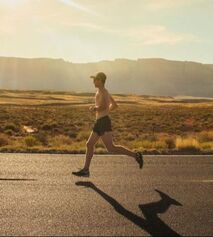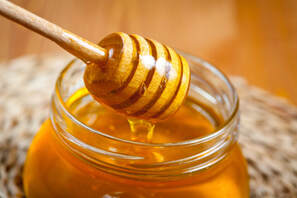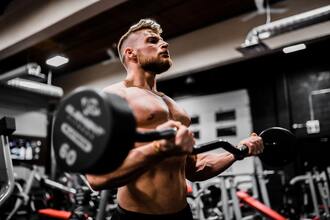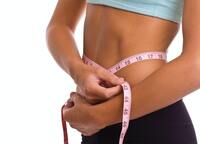 A workout for the sole purpose of physical exercise can only have limited health benefits. It can help you stay fit to some level and boost your serotonin levels to some points. When you add mindfulness into your workout however, it becomes the secret ingredient to overall well-being, including physical and mental health. Before we move on to the positive effect of mindfulness on your workout, let's explain what a mindful workout is. What is a Mindful Workout? Mindfulness is part of a holistic approach to wellness and fitness. It helps you understand better what is happening in your body and enabling you to learn and improve your physical and mental wellness. A mindful workout is made complete by incorporating all you have gathered from your senses. By leaving your headphones at home you can become aware of every breath and every sensation in your body. Mindfulness during a workout means being present in the moment and aware of your thoughts, potential discomfort, and the sensations in your feet while they touch the ground. It helps you truly experience every second of your workout and get the most out of it. Let's take mindful running, for example, to describe the benefits of a mindful workout. By being concentrated on your mind and body, mindfulness reduces external distractions. Therefore, you are more relaxed, without thinking about your speed, distance, personal records, etc. By maintaining internal focus, you are ready to overcome your limitations. But, because you are focused on the sensations in your body, the injuries are less likely to happen. You'll notice the signs of discomfort and expand your limitations. How to Do Mindfulness Running? The first thing to remember when practicing mindful workouts is to breathe through your nose. Mouth breathing is part of the stress-induced changes in your breathing, so nose breathing helps you relax and get into the right mood. Mindfulness is all about the mind-body connection, so try to keep the inner conversation with your body. Let go of the social expectations and social distractions, timings, tracking devices, points, or anything similar, which can shift your focus from internal feelings to external activities and objects. Don't measure time and think about the technique. Before you start your workout, prepare for the mindful experience. Do a quick meditation to get out of the state of stress and prepare for the next activity. Five or ten minutes of deep breathing and mindfulness exercises will be enough to get you in the right state of mind for your workout. Once you've done the prep work, it is time to engage your focus on your sensations and mind. Start slowly and listen to your body to adjust your pace. Check for the physical sensations as you speed up or slow down. If your heart and breath rate speed up, feel the warming up in your body, the heart beating in your chest, experience every sensation in your muscle. Maintain that state of mind and internal focus, but try not to think about the sensations, just feel them. What about Your Thoughts? Once you maintain the awareness of bodily sensations, focus on your mind. Stop replaying situations and scenarios in your head, and use running (or any other workout) as a time to express gratitude for your physical health. If you feel like your thoughts are getting out of control, focus on breathing. It will help you calm dow and gain control over your minfulness. Don't think about the end line, feel every step and movement. Slowly, you'll increase your abilities and enjoy your workouts more!
0 Comments
 Honey is an organic, natural sweetener that serves a great purpose as a sugar alternative. It is widely used in almost every cuisine around the world. This is perhaps because it has many great qualities such as its indefinite shelf life, its ease on the stomach, and the reason that it adapts to all cooking processes. According to an article by Date Carson, honey dates back to 2 100 B.C. It is believed that the natural sweetener was found in Asia or Africa. On top of that out of 12,000 different bees, there are only a few varieties that store honey. An average bee’s life span is from 4 to 6 weeks and the required amount of bees to produce 450g (1 pound) of honey is around 160,000. That means, in order to get a single jar of honey, there are an innumerable number of generations of bees involved. Honey is also used in Medicine… According to a 2012 review, regardless of whether it will be consumed directly, mixed with other remedies, or applied directly to the skin honey helps for treating the following illnesses or injuries:
Now, let’s look at what are the pros of eating honey. Benefits Of Eating Honey
We bet that the good old honey came in handy at least once in your lifetime. It is believed that honey is an effective measurement against a cough in children and adults. One or two spoons before bed can provide for a calmer night.
According to a study from 2017, honey contains prebiotic properties. As we know, prebiotics help ferment beneficial bacterias in the gut. Furthermore, this was related to a stronger immune system and general welfare.
Honey is not only rich in antioxidants, it is also very rich in nutrients. It is found that there are 31 minerals found in honey, such as magnesium, phosphorus, potassium, and calcium.
Some types of honey help protect your body from cell damage. It is believed that there are almost the same amount of antioxidants in honey as in fruits and veggies. Having antioxidants in our diet is healthy because they may prevent the development of chronic diseases like heart disease and cancer.
As we know honey is far better than glucose from sugar, used to boost endurance. Consuming a spoon of honey before or even during your training is believed to enhance your athletic performance. Pro Tip: Add a spoon of honey to your bottle of water and consume it during your session. But with so many benefits, is there something that could go wrong? Cons Of Eating Honey
If your goal is to decrease body fat percentage, then consuming a lot of honey might not be a good idea. Because of its liquid form in most cases, eating too much honey can easily make you exceed your daily caloric intake. Always strive NOT to exceed the recommended amount of honey per day, which is around 1-2 small spoons for a healthy person without any weight problems.
For this reason, always use honey in moderation.
Babies don’t have the required digestive system to consume honey, and there is a risk of botulism. Takeaways Honey is one of the oldest foods in the world and it is used in almost every cuisine around the globe, as well as in medicine. It has many benefits but should be taken in moderation because it can be very calorie-dense.  Is There a Way to Stay Fit While Travelling? When traveling, you want to embrace everything around you - new places, new customs, new people, new smells, but also new foods and delicious treats. Nobody wants to keep counting calories when staying in a top hotel surrounded by delicious meals or restraining oneself from trying national food specialties. This is why many people often come back from a trip having gained three or four additional pounds. But, luckily, there are some tips on how to stay fit while traveling. Get ready and take notes for your next trip! Tip #1 Invest in Some Good Travel Exercise Equipment If you exercise regularly, there is no need why you should not keep up with your workout schedule. However, instead of having a complete workout, perhaps consider spending 15 minutes and focusing on one series of exercises each day. For example, on the first day perhaps make it leg day, you can do push-ups the second day, and so on. If you have compact travel equipment with you, you are more likely to take action if for no other reason than its presence acts as a reminder. Tip #2 Sightseeing on Foot Walking on your vacation is an excellent way to engage in physical activity, which is easily worked into your sightseeing plans. Instead of taking a cab, or going by bus, walk to your next tourist spot. This will help you burn more calories, and you may discover some hidden sights that pass too quickly by car. Tip #3 Hiking Explore the surroundings of the place where you are traveling for some interesting hiking locations. Hiking will reveal beautiful nature and provide you an exceptional and memorable experience. Hiking is fun and yields itself to some beautiful landscapes which will provide a happy distraction for you, allowing you to forget or overlook the burning sensations in your muscles. Be sure to choose the distance and terrain that matches your fitness condition. Tip #4 Perform a Morning HIIT Workout HIIT workouts are designed to get you the most of your workout in the shortest time. It will include quick, but effective exercises, such as burpees, push-ups, high knees, crunches, scissor leg lifts, etc. In only ten minutes, you can complete one HIIT workout before breakfast. You can find free HIIT workout videos on YouTube, if you don’t have a fitness app subscription. Tip #5 Try WatersportsIf you are on a holiday that includes the beach, try something beyond just indulging in sweet cocktails and tanning. Take a morning swim or jog on the beach. Water and sand provide great resistance, allowing you to get a more intense workout in a shorter amount of time. Tip #6 Plan and Balance Your Meals Research the national cuisine of the place you are visiting. Find what some good restaurants and check their menus online. This will allow you to choose the food you want try as you plan the rest of the meals to keep you within your recommended daily calorie intake. You don't have to give up on trying local specialties. However it is recommended to stay away from the on to go places such as the Pizza Hut’s, McDonald's, and Burger King’s. Final Tip Relax and enjoy your vacation. Do short workouts and plan your meals and exercises before you get on the plane. Do your best to stick to the plan but with enough flexibility that you have a good and enjoyable trip. So try to get the most out of your vacation and make sure it is an active one.  Testosterone is one of the most important male hormone, as it regulates your sexual function, governs recovery, growth, bone density, along with many other physiological processes. Low testosterone levels are perhaps one of the worst problems a male can encounter, as it can lead to unpleasant side effects, such as:
Likely, you don’t want to experience these and neither and the thought of injecting testosterone in your body may make you cringe. If that’s the case, you are in the right place - In this article, we’ll give you the most important things you can start doing right away to boost your testosterone level naturally. Now without further ado, let’s jump right into it! Your testosterone levels naturally drop as you age, but before you jump into testosterone replacement therapy options, it is best to do a complete overhaul of your habits. Here are the things that have the highest impact on your natural testosterone levels: #1 Nutrition What you put in your body has a MAJOR effect on the way your bodily systems work. Including the hormonal (endocrine) system. It is a fact that food provides the body with essential nutrients, which the body needs but can’t produce on its own. Additionally, poor nutrition usually leads to the gain of excess weight which as it turns out, high body fat levels have been shown to lower your testosterone levels. (1) This is why, if you want normal testosterone levels, you should at least keep a normal body composition (fat to muscle ratio, healthy range is under 25%).. In terms of nutrients, fat and protein are the two most important components of your nutrition plan, which will nurture testosterone production. Low intake of dietary fats has been shown to decrease testosterone levels in males. However, carbs have their place as well. Although they’ve been demonized carbohydrates can also help optimize testosterone in combination with resistance training. (2) Whole foods are key with several notable foods such as beef, chicken, pork, eggs, dairy, grains, beans, legumes, fish, fruits and vegetables. #2 Weight training If you’re trying to give the body a reason to ramp up testosterone production, weight training is the perfect tool to do so. When you do workouts with heavier weights and shorter-lasting sets, muscle breakdown occurs, which is termed “muscle protein breakdown”. Paired with good nutrition, this powerful stimulus will unleash a flurry of anabolic (constructive) processes and testosterone production is a part of those anabolic processes! To begin perform 2-3 full body resistance training workouts per week with cardio activity on the other days. Focus on compound movements (exercises that engage more than 1 muscle group) for the large muscle groups. (3) #3 Sleep Though many people consider the body and brain to be at complete rest while sleeping, that is actually not true. During sleep, we organize all the sensory information we got throughout the day, but we also recover and grow stronger. Sleep is important for the regulation of many bodily systems, including the hormonal system. (4) In general, it is recommended that you have 6-8 hours of quality sleep per night, depending on age and daily activity. #4 Lifestyle It is a fact that nowadays, many people use their bodies as vessels for sensory pleasure… This leads to many toxic, testosterone-lowering habits, such as drinking and smoking. If you want your body to be at peak performance, there is no magic pill or supplement that will get you there. A lifestyle change is necessary and needs to include sufficient movement, quality food, and good recovery periods. #5 Stress management One of the WORST things about the modern-day lifestyle is that it puts you through a considerable amount of stress. When you’re stressed (regardless of the factor), the body releases cortisol, which is the main stress hormone. Elevated cortisol levels have been proven to lower secreted testosterone. (5) This is why managing stress is of prime importance for your natural testosterone production. When you feel stressed, consider practices such as meditation, mindfulness, reading a book, going for a walk, or simply self-talking yourself to an internally regulated, calm state. Conclusion Testosterone is a key hormone for males and deficits can lead to unpleasant side effects. Whether you are young or older, there are lifestyle changes you can implement to restore your natural testosterone production. Such things as becoming/remaining active, feeding your body well, allowing for sufficient recovery and sleep, and last but not least, managing daily stress. References
Edited by Jumping JACs  The weight scale is perhaps one of the most common tools which people use to monitor & judge their fitness progress. However, more often than not, it is something that will leave you frustrated and unmotivated. For some the scale is in fact the single most powerful mood-shifter! Certainly your weight is an important variables to track. However, whether you are losing or gaining weight, the scale falls short when we want to get a complete picture of what our health looks like. This is exactly why it should not be the only merit of your progress, whatever your goal is. In this article, we are going to explain the other, important metrics you should keep track of and how to actually use the scale so you can make it a functional part of your plan. Now let’s get to it! Does Your Weight Matter? Now, surely, the scale has its applications on your way to a healthier body, which is why we are not telling you to completely give up on using it. This is especially true in respect to certain important variable when it comes to calculating your daily calories, macronutrient needs, or intake of certain supplements, which are based on the individual’s weight. But despite those points let’s say this one more time - The number on the scale MUST NOT be your ONLY merit of progress. There are many other things that you should watch, in addition to the scale and it is therefore important to be committed to not allowing the scale to kill your mood. The Scale and What It Does NOT Show Okay, think about it - Can one single number really show you everything there is to know about your fitness? Is this number everything you really need to determine whether or not you are fit enough? For the general population, weight should only represent a small percentage of the things we judge progress on. It is a fact that the scale cannot show you things such as:
All of the above are far more important metrics of progress and if you only rely on the number that the scale shows, you are in for some massive disappointments. HOWEVER, if you weigh yourself correctly and relate the change in weight to other parameters, such as the ones from above, you will have a much more realistic idea of your progress. How To Use The Scale (The Right Way) If you want to make your weight scale a viable tool on your fitness journey, rather than something that will shake your beliefs and motivation, PLEASE use these tips below:
Whenever you get a weight in, make sure it is IN THE MORNING, before eating, after going to the bathroom and undressed. THIS is your true weight! If you weigh yourself on the same day, at the same time, before eating anything and after going to the bathroom, you will get the most accurate reading possible. Otherwise, you risk weighing the food you took in, the water you drank, the fluids you retained, etc.
For the goal of sustainable weight loss and maintenance of lean body mass (lbm), you should strive to lose between ½ a lb to 2 lbs a week. If your true reading shows a loss greater than 2 lbs for the week, don’t be afraid to bump up the calories slightly. If on the other hand, the reading shows an insignificant loss of weight, decrease calories slightly. Oppositely, if you are trying to gain weight, aim for no more than 0.5-1 lbs a week. This will allow you to avoid any unnecessary fat gains and thus, take less time to shred down afterward.
If you narrow everything down to the number on the scale… You’re in for disappointments. Whenever you get a reading on the scale, whatever it is, set goals for your strength, endurance, visual look, mood, energy, etc. This will help keep you motivated and will give you a different perspective on the bigger picture. Important Takeaways Though your weight is an important variable when determining progress, setting up & adjusting a diet, it is NOT the only thing you should narrow your progress down to. The scale does not show more important things like body composition, strength levels, mood, or how you actually look. Ultimately, your best bet is to monitor your progress on all variables possible, to ultimately determine whether your work is paying off well or your plan needs adjustments. |